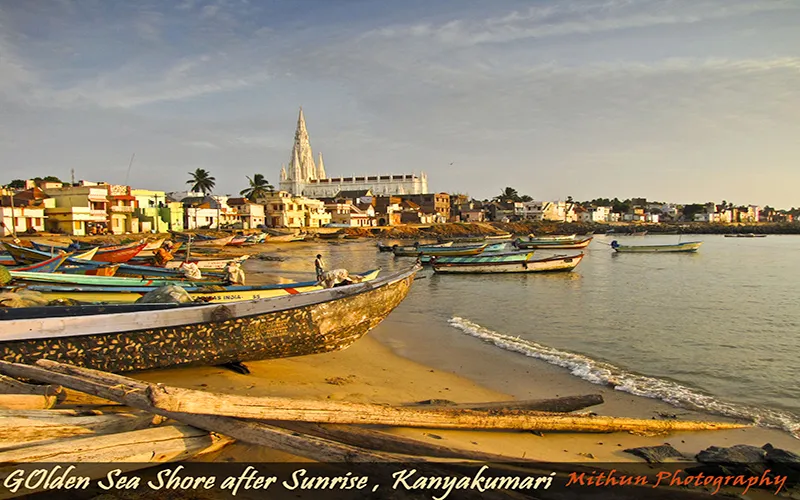-
CENTRES
Progammes & Centres
Location
A dedicated fishing ministry would be able to deal with fishermen's problems holistically. India can thus begin her correctives at home, and without reference to either the neighbourhood seas or the nations that own them.

It is likely that the recent decision of the authorities of the British Indian Ocean Territory (BIOT), the overseas UK territory which is in charge of Diego Garcia, to release 23 Indian fishermen -- 14 from Tamil Nadu's Kanyakumari district and the rest from Thiruvananthapuram detained for fishing in their exclusive economic zone -- was related to Prime Minister Narendra Modi's London visit. It is interesting to note that their case has not got as much attention as that of Rameswaram fishermen who get into trouble with the Sri Lanka Navy .
Diego Garcia is associated with the geo-politically and geo-strategically controversial deal between the British colonisers and their US allies, a 50-year agreement that is due to come up for review and possible extension in 2016. When the native Chaggans are not allowed to return to their own land -home to a naval base -there was no question of Indian fishermen being allowed any leeway, even on fishing expeditions.
Fishermen, particularly from Kanyakumari and Rameswaram, are often detained in the waters of Sri Lanka, Diego Garcia, and Gulf countries. While the Sri Lankan and BIOT authorities do not raise the question of citizenship, passport and visa norms, in the Gulf waters, the charges against them also include these aspects of the law. It is common for TN fishermen to overstay in the Gulf.
Before looking at external issues, we have to introspect a bit. Indian law-enforcing agencies have done little to check the continued mushrooming of illegal job agencies, which lure illiterate people with the promise of a good pay, overseas. It is obvious that if they had found gainful employment nearer home, they would not have to depend on fishing for livelihood. It is worthwhile noting that some of those detained by other nations on charges of poaching, or visa violations, often return to those countries in search of employment. On rare occasions, the unlucky few get caught again.
This is not to say that the fishers' problems should not be resolved through negotiated settlements -particularly viz Sri Lanka. But then the conditions are common to Indian fishermen caught in Lankan waters and Diego Garcia seas. The latter from Kanyakumari district of Tamil Nadu have been doing deep-sea fishing for centuries, but in their, case governments, political parties and academics have shied away from deploying the conventional arguments of `traditional rights' and `historic waters'.
But if the argument is applied to one section of the state's fishermen, it should apply to others, too. If not, both should be kept out of other nations' waters and the state and Centre should help them find alternate employment, including deep-sea fishing in `international waters', which in principle, they seem to concede without an argument. This only makes us conclude that the absence of an overriding reason like the Sr Lankan ethnic tangle may have been a hurdle for the Kanyakumari fisher men to push their cause.
The fisheries, revenue and police at the lower level know enough about the priorities, habits and conventions of fishers in TN. At the higher admin istrative levels are over-worked policy makers whose time is expended on arranging freedom for and return of fishermen from prisons elsewhere There thus exists an avoidable com munication gap in enforcement. The political class either takes advantage or their hands are forced.
What could help is a separate ministry for fisheries, which was promised by BJP before the 2014 elections, but continues to be under the agriculture ministry . The situation is not any better in TN. A dedicated fishing ministry manned by high officials would be able to deal with fishermen's problems holistically. India can thus begin her correctives at home, and without reference to either the neighbourhood seas or the nations that own them, or to even the fishermen, who are arrested for poaching in those waters.
(The writer is a Senior Fellow at Observer Research Foundation, Chennai).
Courtesy: Times of India
The views expressed above belong to the author(s). ORF research and analyses now available on Telegram! Click here to access our curated content — blogs, longforms and interviews.